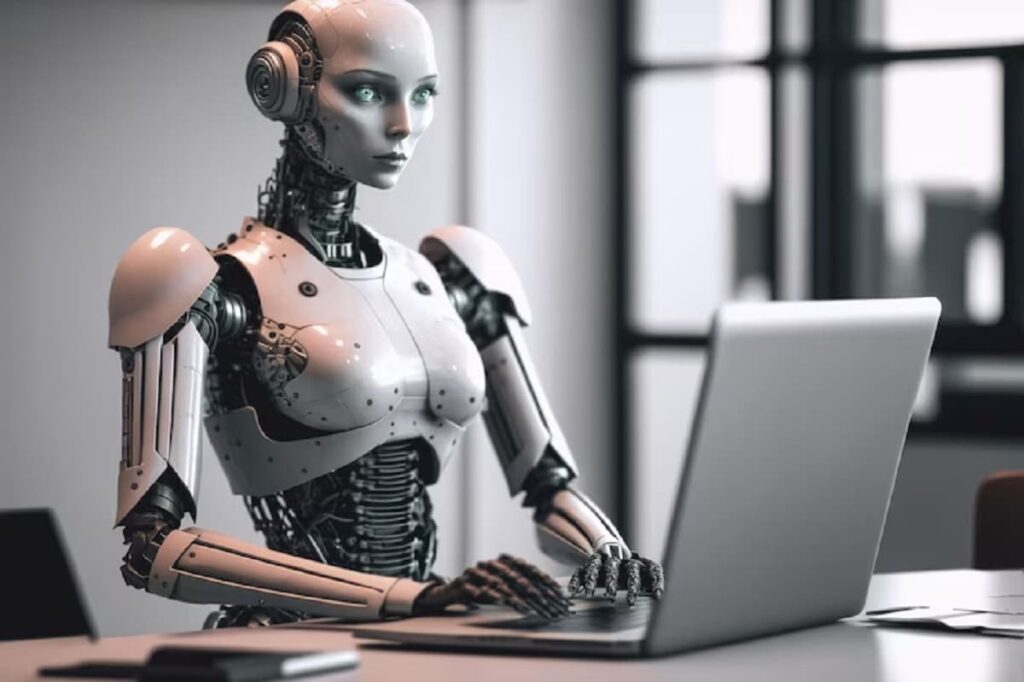A new study conducted by researchers from OpenAI and the University of Pennsylvania has shed light on how GPT-4, OpenAI’s most advanced language-processing model, could impact the American workforce. The study found that up to 80% of the US labor force could see at least 10% of their work tasks affected by GPT language models, while 19% of workers may see at least 50% of their tasks impacted.
However, the study also found that some workers will be affected more than others. Those who work jobs with higher wages, including blockchain engineers, mathematicians, financial quantitative analysts, accountants, tax preparers, writers, public relations specialists, interpreters and translators, poets, and lyricists, are at a higher risk of exposure than workers with lower wages.

The study’s authors noted that jobs in the “information processing industries,” such as IT, are most exposed to generative AI, while jobs in “manufacturing, agriculture and mining” are the least exposed. This is because roles that use programming and writing skills are most in-line with GPT’s capabilities.
The study’s authors acknowledge that the study isn’t perfect nor definitive. Still, they concluded that it is possible that generative AI models can make human labor more efficient, but that “social, economic, regulatory, and other factors” may influence actual labor outcomes.
The impact of AI on jobs has been an ongoing debate, with some labor experts suggesting that AI could replace certain jobs, while others believe that it will simply make workers more productive. As AI capabilities continue to evolve, the impact of GPTs on the economy will likely persist and increase, posing challenges for policymakers in predicting and regulating their trajectory. Further research is necessary to explore the broader implications of GPT advancements, including their potential to augment or displace human labor, their impact on job quality, impacts on inequality, skill development, and numerous other outcomes.
Artificial intelligence has been advancing rapidly, and it’s no surprise that there are concerns about the impact of AI tools like OpenAI’s ChatGPT on the American workforce. According to the study, jobs that require higher levels of education and higher wages are at the greatest risk of exposure to AI tools.

The study found that workers in information processing industries, such as IT, are most likely to be impacted by generative AI models like GPT-4, while those in manufacturing, agriculture, and mining are the least exposed. This is because jobs that use programming and writing skills are most in line with GPT’s capabilities.
The study’s authors note that while generative AI models can make human labor more efficient, there are social, economic, regulatory, and other factors that may influence actual labor outcomes. Policymakers will need to carefully consider the impact of AI tools on the workforce and the broader implications of these advancements.
It’s important to note that while AI tools like ChatGPT can automate certain tasks, they can also complement human workers and make them more productive. As AI capabilities continue to evolve, it’s crucial to strike a balance between automation and human labor to create a sustainable future for the American workforce.
One of the interesting findings of the study is that workers with bachelor’s, master’s, and other professional degrees are at high risk of exposure to AI, while those with only a high school diploma, vocational school, or on-the-job training may be less impacted. This is contrary to similar evaluations of overall machine learning exposure, which found that lower-skilled workers were more at risk of job displacement due to AI.

Some of the jobs listed as having the highest exposure to AI include blockchain engineers, financial quantitative analysts, and writers, among others. These jobs require advanced skills, which means that workers will need to continually upskill and adapt to the evolving technological landscape to remain competitive in the job market.
While the study is not meant to be definitive, it raises important questions about the impact of AI on the workforce and highlights the need for further research and regulation. As AI tools become more advanced and accessible, policymakers will need to work alongside businesses and workers to ensure that the benefits of automation are shared equitably and that the workforce is prepared for the changing nature of work.
In conclusion, AI tools like OpenAI’s ChatGPT are undoubtedly transforming the American workforce, and the impact is likely to persist and increase in the coming years. While this presents challenges.